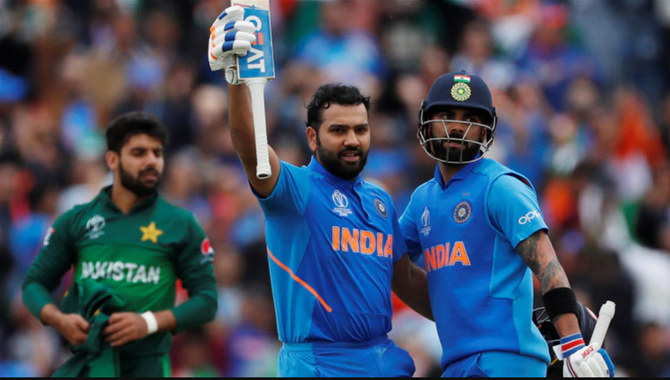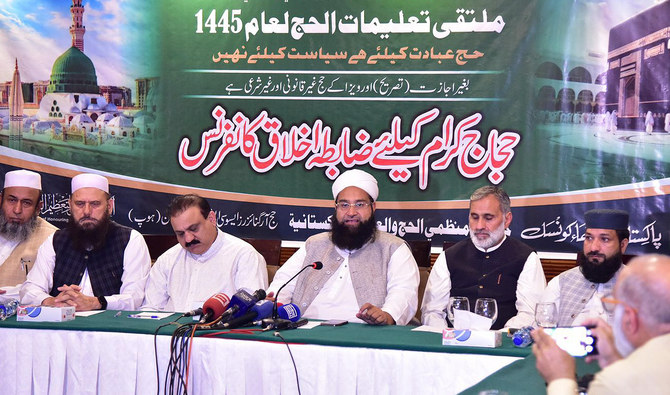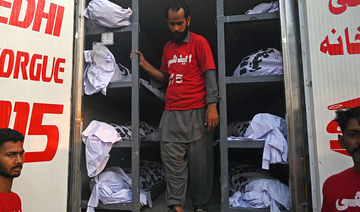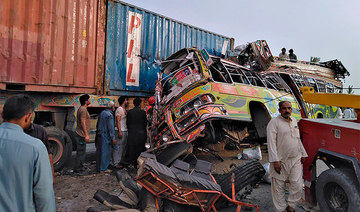KARACHI: In order for any sporting competition to be interesting, we require some level of parity. Watching a complete mismatch, where one competitor destroys the other, can be interesting once or twice but if repeated, becomes a bore. Without competition, sports loses its essence — its ability to provide escape and entertainment.
On Sunday in Manchester, Pakistan endured arguably the most comprehensive of its seven consecutive defeats to India in the World Cup, leaving one wondering if this was even a competition anymore. Indeed, there was simply no point during the much-hyped clash when India looked like they would lose to their alleged rivals.
To be fair to them, Pakistan had laid out all the signs for an epic mismatch. The night before the game, pictures emerged of the players piling into a carb-friendly American diner, with captain Sarfaraz Ahmed walking away with a creamy milkshake. Another video, allegedly from the same night, showed veteran Shoaib Malik and a few other players, smoking sheesha. It wasn’t clear when these images were taken, but for professional athletes to be indulging in such activities during a World Cup hinted at an unprofessional side that wasn’t quite up to the challenge.
That feeling persisted at the toss, when both captains spoke on TV. India’s VIrat Kohli, leading one of the tournament favorites, was almost blasé about the nature of the occasion, quipping that “it’s just another match. We don’t think about the opponent.”
In contrast, Pakistan’s Sarfaraz Ahmed admitted that “whenever India and Pakistan play, it’s always very special. A big match.” That difference in approach spoke volumes about the two teams, with one appearing focused and calm and the other trying to harness the chaotic nerves caused by pressure.
At least Sarfaraz won the toss, the last time that Pakistan had an advantage on the day, after which his decision to bowl first arguably backfired. Indian opener KL Rahul later said that the team had expected to score around 270 considering the weather, so the eventual total of 336/5 was well above par.
Perhaps the most symbolic moment showcasing how ineffectual Pakistan would be during this match came early in the Indian innings. Rohit Sharma, who would end up with the highest score in World Cup matches between these two sides, was left stranded far from his crease after a mixup with Rahul. But somehow, the Pakistani fielders reacted in a tragicomic manner, throwing at the wrong end and failing to collect the ball cleanly. Rohit survived, and it allowed the Indian side to continue its dominant start. Near the end of the innings, the falling of two quick wickets again suggested some hope for Pakistan, but a brief rain shower halted their nascent momentum. Eventually, India ended with the highest score posted in an India-Pakistan World Cup match.
Pakistan’s bowlers were largely quite poor, with former world no.1 Hasan Ali the bellwether for his side, his alarming drop in form mirroring the listlessness of his team. The one bright spot was Mohammad Amir, who continued his perchance for showing up for tournament matches, capping off a superb performance of 3/47 to become the joint leading wicket-taker in the World Cup.
Sadly for Pakistani fans, the bowling effort was arguably the high point of the match. The Pakistani batters Fakhar Imam and Babar Azam did put up a 100 run partnership, though it came slowly enough that the momentum was never with them. And then in a twist that was sadly and eminently predictable, Pakistan suddenly lost five wickets for twelve runs, and the match effectively ended with more than a quarter of it still to go.
So, if you’re still looking for symbols to encapsulate the mismatch, you could point to the fact that Hardik Pandya and Vijay Shankar — the two weakest Indian bowlers — were largely responsible for this collapse. Pakistan couldn’t even compete with India’s backup, and it was perhaps a blessing that rain arrived to reduce the match length and put Pakistan out of their misery.
After the match, Kohli re-emphasised the main reason his side has been so dominant of late. “If you focus on this (Pakistan vs India) game too emotionally, things can go wrong. We never approach them from that perspective. We are professional about it and the result is what matters.” His counterpart, Sarfaraz had little to offer, rueing that “definitely, it’s getting tougher and now we have to win all remaining games.”
The problem for Sarfaraz is that even if they win every single one of their remaining four matches, a task that currently looks impossible, qualification still won’t be guaranteed. Pakistan would need for other results to go their way in order to complete a miraculous entry into the knock-outs. For India, this was merely a notch to mark off enroute their expected procession to the knockout stages.
In the larger picture, India having a comfortable win over Pakistan just continued a trend that has now held for twenty seven years. Yet at the same time, the abject mismatch of this encounter might finally start raising the question of whether it’s even worth it to care as much about this occasion.
Pakistan cricket has consistently looked a decade or more behind India’s, who look comprehensively better in every department. Any chances of this rivalry becoming more even look remote at best, and the widening material gulf between the two cricket boards will only reinforce that disparity. This no longer feels like a competition, but just an exercise for one team to show off its undeniable superiority. For all the shared history and culture that causes this match to be so hyped, games like tonight’s might eventually cause this rivalry to seem like little more than a memory.
Woeful Pakistan slump to abject World Cup defeat against arch-rivals India
Woeful Pakistan slump to abject World Cup defeat against arch-rivals India

- During Sunday’s much-hyped match, there was no point when India looked like they would lose to their alleged rival
- India having a comfortable win over Pakistan continued a trend that has now held for 27 years
At least 20 killed as bus plunges into gorge in northern Pakistan

- The bus, which carried 42 passengers, was en route to Rawalpindi from Hunza
- Road accidents are common in Pakistan, where traffic rules are rarely followed
KHAPLU, GILGIT-BALTISTAN: At least 20 people were killed and over a dozen others were injured after a bus plunged into a gorge in Pakistan’s northern Gilgit-Baltistan (GB) region, officials said on Friday.
The passenger bus was en route to the garrison city of Rawalpindi from Hunza when it plunged into a 300-meter-deep ravine near the Gunar Farm area in GB’s Diamer district, according to Sardar Sheheryar Khan, senior superintendent of police (SSP).
Rescue 1122, police and paramilitary Frontier Constabulary and GB Scouts immediately reached the site and shifted all bodies and injured persons to the Regional Headquarters Hospital in Chilas.
“Soon after the accident, announcements were made from loudspeakers of mosques and local people rushed to the site and joined hands with the administration for the rescue,” Khan told Arab News.
“Dozens of locals are at the hospital for blood donation. Emergency has been imposed at the hospital and all doctors and paramedical staff are busy treating the injured.”
The driver lost control of the bus, which carried 42 passengers, while navigating a curve and it fell into the ravine, according to officials.
“Among the five critically injured, two were shifted to Gilgit via road and three others will be airlifted by army helicopter soon,” Fiaz Ahmad, the Diamer deputy commissioner told reporters.
“Best treatment was being given to injured,” he added.
Prime Minister Shehbaz Sharif expressed regret over the loss of precious lives in the accident. “The prime minister issued directives to provide all possible medical aid to the injured,” Sharif’s office said in a statement.
Interior Minister Mohsin Naqvi extended his condolences to the families of the deceased. “We equally share the sorrow of the bereaved families in this hour of grief,” he said in a statement.
Road accidents are common in Pakistan, where traffic rules are rarely followed and roads, particularly in many rural areas, are in poor condition. In the mountainous Gilgit-Baltistan region, road tragedies are daily news.
In July 2023 alone, at least 41 people, including tourists, were killed in road mishaps across the region, according to rescue officials. In 2022, at least 77 people died and 467 were wounded in accidents in GB.
In Hajj code of conduct, Pakistan Ulema Council urges pilgrims not to engage in political activities
In Hajj code of conduct, Pakistan Ulema Council urges pilgrims not to engage in political activities

- The code of conduct highlights sacredness of the Hajj period, aims to ensure hassle-free experience
- PUC Chairman Tahir Ashrafi advises Pakistanis in the Kingdom against unauthorized Hajj pilgrimage
ISLAMABAD: Tahir Mehmood Ashrafi, the Pakistan Ulema Council (PUC) chairman and patron-in-chief of the Hajj Organizers Association of Pakistan (HOAP), on Thursday urged Pakistani pilgrims not to engage in political activities during the Hajj pilgrimage as he unveiled a comprehensive code of conduct for Pakistanis, who would be performing Hajj through private operators.
Ashrafi emphasized the importance of booking Hajj journeys only through authorized operators and cautioned intending pilgrims against fraudulent groups active on social media platforms, according to the PUC, an umbrella group of religious scholars and organizations.
He discouraged pilgrims from engaging in “disruptive behavior,” such as taking selfies and videos during Hajj rituals, which could cause inconvenience to fellow pilgrims, stressing the need to focus on religious duties and maintaining decorum for a seamless pilgrimage.
“Ashrafi urged pilgrims to refrain from engaging in political activities during the Hajj season, particularly at Haramain Sharifain and other sacred sites in Saudi Arabia,” the PUC said in a statement.
“He underscored that such actions are not only contrary to Islamic teachings and Shariah but also reflect poorly on Pakistan in the international community.”
In 2022, the Madinah police had arrested at least five Pakistani nationals for “abusing and insulting” then Pakistani information minister Marriyum Aurangzeb and minister for narcotics control Shahzain Bugti at the Prophet’s Mosque in the city.
Videos shared online showed some individuals chanting slogans as the ministers, who were part of Prime Minister Shehbaz Sharif’s delegation, visited the Prophet’s Mosque. In Pakistan, police had also registered cases against former prime minister Imran Khan and members of his party for sloganeering against the Pakistani delegation under a “planned-out scheme and conspiracy.”
The code of conduct, grounded in the Holy Qur’an and the Hadiths of the Prophet Muhammad (Peace Be Upon Him), underscores the necessity of undertaking Hajj with halal wealth, refraining from disputes, and embodying dignity and humility throughout the pilgrimage, according to the PUC.
It highlights the sacredness of the Hajj period and the significance of sincere intention solely for the pleasure of Allah.
“Hajj without official permission is strictly prohibited according to Islamic principles and the law of the land,” Ashrafi said, urging Pakistanis in Saudi Arabia to refrain from unauthorized pilgrimage.
“Individuals caught without proper authorization would face consequences, potentially tarnishing the reputation of the country.”
The PUC urged pilgrims to acquire comprehensive knowledge of the rituals and seek guidance when needed.
“They must adhere to the guidelines set by the Ministry of Religious Affairs and Interfaith Harmony and appointed leaders of Hajj and Umrah groups, prioritizing obedience to Allah and His commandments,” it said.
“Patience is emphasized in facing challenges, be it delays at airports or congestion on roads.”
The PUC said the code of conduct was aimed at ensuring a “spiritually enriching and harmonious” pilgrimage, rooted in devotion, humility, and obedience to Allah’s commandments.
Hajj is an annual Islamic pilgrimage that has been in practice for over 1,400 years. It is one of the five pillars of Islam, and requires every adult Muslim to undertake the journey to the holy Islamic sites in Makkah at least once in their lifetime, if they are financially and physically able.
Pakistan has a Hajj quota of 179,210 pilgrims this year. Of them, 63,805 pilgrims will be performing the pilgrimage under the government scheme, while the rest would be accommodated by private tour operators, according to the Pakistani religious affairs ministry. The South Asian country is set to start its Hajj flight operation on May 9, which would conclude on June 9.
This year’s pilgrimage is expected to run from June 14 till June 19.
Transporters continue protest in southwest Pakistan after talks fail over new highway security plan

- The Balochistan government has decided to established new security check-posts where soldiers would check all passenger buses
- The decision came after the killing of nine passengers from Punjab province, but transporters say it would cause massive delays
QUETTA: Transporters in Pakistan’s southwestern Balochistan province continued their protest on Thursday, they said, after the failure of a second round of talks with the government over a new security plan for highways.
An alliance of transporters in the provincial capital of Quetta has been protesting for the last two weeks the government’s new standard operating procedures (SOPs) aimed at providing maximum security to passengers traveling through one of the key provincial highways in Pakistan.
The government in the restive province last month announced to revise its security plan for the Quetta-Taftan highway after gunmen killed nine passengers, who hailed from the eastern Punjab province, after abducting them from a bus near the Noshki district in Balochistan.
The second round of talks between representatives of the transporters and the government failed and the transporters said they would continue their protest in the provincial capital.
“A 12-member delegation of transporters met with the government’s negotiation committee today for the 2nd round of talks in order to discuss concerns of local transporters, but the meeting ended without any result,” Mehmood Badini, a representative of the transporters’ alliance who was part of the talks, told Arab News on Thursday.
“We stand on our demands but the government officials have said that they will call a high-level meeting to discuss our demands in the coming days. We have decided to continue our strike on all major routes unless our demands are met.”
The mineral-rich province of Balochistan has been the scene of a low-level insurgency by Baloch separatist groups demanding independence from the central government in Islamabad. The militants usually target police and security forces or infrastructure.
Although the government says it has quelled the insurgency, violence in Balochistan has persisted. The attack in Noshki sparked widespread condemnation and prompted the provincial government to revise its security plan for highways.
Saeed Ahmed Lehri, chairman of the All Balochistan Transporters Alliance, said the transporters were on a strike at the N-40 Quetta-Taftan highway, N-85 Quetta-Makran Highway, N-25 Quetta-Karachi highway and N-65 Balochistan-Sindh highway against government’s new travel security SOPs.
“The government has established new security check-posts at the N-40 Quetta-Taftan highway and security forces are directed to check all buses at every check-post,” he said. “The New SOPs would cause delay for passengers and drivers, even the government is going to prevent transporters from the deployment of two private security guards inside buses at their own expense.”
Shahid Rind, a spokesman for the Balochistan government, said they would keep negotiating with the transporters in the coming days to find a “concrete solution” to the issue.
“The government’s prime responsibility is the passengers’ safety and security, hence we won’t step back from this stance,” he told Arab News. “But there will be more rounds of talks with the transporters.”
Rind said the government had revised its security plan and decided to establish new security check-posts at all highways after the Noshki attack.
“Balochistan has a vast landscape while in some areas mobile networks do not work,” he added.
Pakistan pushes back deadline for expressions of interest to buy national airline

- The extension came a day before the expressions of interest had originally been due
- Pakistani tycoon Arif Habib, aviation-based company Gerry’s Group were among bidders
ISLAMABAD: Pakistan will push back the deadline for companies to express interest in buying national carrier Pakistan International Airlines to May 18, the country’s privatization minister said on Thursday.
The extension, announced in a statement by Minister for Investment and Privatization Abdul Aleem Khan, came a day before the expressions of interest had originally been due. He said 10 companies had already expressed an interest.
“The Board accorded approval for extension in the date for submission of interests on the request of interested parties,” he said, referring to the Privatization Commission Board he leads.
Pakistani tycoon Arif Habib and aviation-based company Gerry’s Group were among the 10 bidders looking to buy a majority stake in Pakistan International Airlines, Bloomberg News reported on Friday.
Arif Habib, Pakistan International Airlines and Gerry’s Group did not immediately respond to a Reuters request for comment.
Pakistan’s government has previously said it was putting on the block a stake of between 51 percent and 100 percent in the loss-making airline as part of reforms urged by the International Monetary Fund.
The disposal of the flag carrier is a step that past elected governments have steered away from as it is likely to be highly unpopular, but progress on the privatization will help cash-strapped Pakistan pursue further funding talks with the IMF.
A village in Pakistan keeps business and tradition of pottery alive

- At least 150 families are engaged in pottery-making in Tehi, village in Talagang district of Punjab province
- Young craftsmen are trying to expand businesses by introducing innovation, delivering customized products
ISLAMABAD: Sitting in the veranda of his house, Muhammad Shabbir picked up a lump of clay and set it on a potter’s wheel as it spun before him, producing a whirring sound. A few meters away in a large courtyard, his two sons kneaded clay and put finished pots out to dry in the sunlight before they would be taken to a furnace to bake.
The scene is from Shabbir’s home in Tehi village of district Talagang in Pakistan’s vast Punjab province, some 150 kilometres from Pakistan’s federal capital, Islamabad, where over 150 families are involved in pottery as their primary source of livelihood. They have learnt the techniques and styles from their ancestors and continue to uphold the age-old tradition of fashioning clay wares by hand.
Around the world, pottery was replaced at the beginning of the 20th century by glass, aluminum, tin and plastic, materials all cheaper and better suited to most tasks than clay.
But Shabbir and his two sons remain steadfast in keeping the craft alive even as it no longer earns them enough to live a prosperous life.
“I have been doing this for the last twenty years,” Shabbir told Arab News. “I used to see my elders, first they used to make them [pots] and now I have engaged my sons to work in the business.”
A special, fine-grained soil sourced from a nearby village is used to make the pots, Shabbir said, which was mixed with sand and shaped into dough to be turned into different designs.
“We knead the mud, make a dough and bring it to the potter’s wheel and then design it into a pot. We put them out to dry and then bake them in the furnace to get the final product,” Shabbir explained.
Across the streets of Tehi, clay pots of different shapes and sizes were displayed at wholesale shops from where they are bought by locals, traders in Punjab and also exported to retailers across the country.
“GOVERNMENT SUPPORT”
Craftsmen in the village make the clay pots five months in a year, three months in summer and two in winter, and pause work in the rainy season when the weather is humid and frequent rains drench the giant clay furnaces used to bake the utensils.
Like Shabbir’s sons, many children in the village started learning pottery-making at a very young age to lend a helping hand to their elders.
Shabbir said his two sons had ambitions to leave the business and graduated high school but could not find jobs.
“We went to school, did matriculation, applied for a job but didn’t get it, and then decided why shouldn’t we learn the craft of our forefathers and do it,” Muhammad Kabeer, a young potter and Shabbir's son, told Arab News as he prepared dough in a barrel.
Kabeer and his younger brother said they wanted to expand their business and the family’s earnings by introducing innovation in the field and making customized pots on order.
“If a customer comes with their own designs, we give them two, three days’ time to deliver the order,” Kabeer said.
The family mainly makes clay pots for wholesalers and while loyal customers do keep ordering, Shabbir said the pottery business had been impacted by inflation and high transportation rates, forcing many people to switch to other lines of work.
Pakistan has been beset by inflation above 20% since May 2022, registering a high of 38 percent in May 2023 mainly due to high food and energy costs. Inflation eased off to 17.3%, the lowest since May 2022, on a year-on-year basis in April 2024 from 20.7% recorded in March 2024 and 36.4% in April 2023, official data issued this week.
His father added: “We work for five months and have to make do with those earnings for the whole year,” Shabbir lamented.
Kabir added:
“We sell them [the pots] to wholesalers and they pay us labor cost only ... If we get the government’s support, we can really expand this business and provide jobs to our friends as well.”












